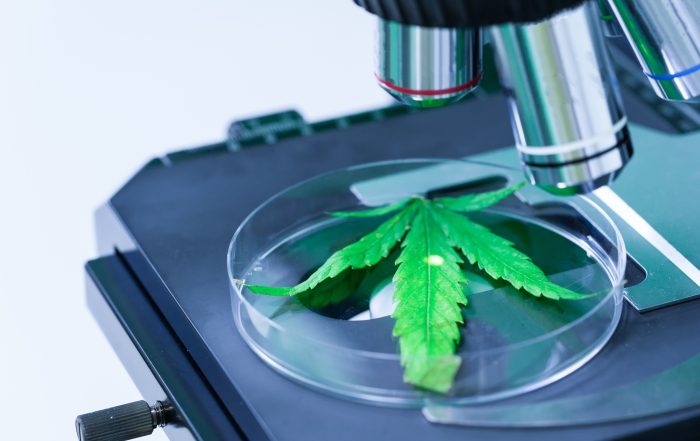
FDA Holds Public Meeting on PMTAs for Deemed Products Meeting Summary
By Tara Lin Couch , EAS Consulting Group and Mark J. Vaders, Womble Bond Dickinson (US) LLP
Introduction
On October 28th and 29th, 2019, the Food and Drug Administration (FDA or Agency) held a Public Meeting about Preparing Marketing Applications for Deemed Products. The meeting, which was held at the Agency’s White Oak Campus in Silver Spring, MD and presented live via webinar, was provided by the FDA’s Center for Tobacco Products (CTP). The Agenda for the meeting was organized into sessions that included a presentation by CTP personnel with follow-up panel discussions that included selected representatives from the tobacco industry. The four (4) sessions were:
- Session 1: Communications & IT Resources
- Session 2: Premarket Tobacco Product Applications (PMTAs)—Review Process and Resources
- Session 3: Premarket Tobacco Product Applications (PMTAs)—Scientific Content
- Session 4: Substantial Equivalence (SE) Scientific Content & Exemption Requests Application-Related Inspections
The meeting also included three (3) stand-alone presentations:
- Application-Related Inspections
- SE Scientific Content, Including HPHC Testing & Reporting
- Request for Exemption from SE Marketing Pathway
Background
The Family Smoking Prevention and Tobacco Control Act of 2009 (TCA) granted FDA the authority to regulate the manufacturing, marketing, and distribution of cigarettes, cigarette tobacco, roll-your-own tobacco, and smokeless tobacco products. Additionally, the TCA granted FDA the authority to issue regulations deeming other products to be subject to regulation under Chapter IX of the Federal Food, Drug, and Cosmetic (FD&C) Act. Pursuant to this authority, FDA issued a final rule on May 10, 2016, deeming all products that meet the statutory definition of a tobacco product, with the exception of accessories of newly deemed tobacco products, to be subject to FDA’s regulation. These “deemed products” include e-cigarettes and other electronic nicotine delivery systems (ENDS), cigars, pipe and hookah tobacco, nicotine gel, and dissolvable nicotine products.
Subsequent to the issuance of the deeming rule, manufacturers of these tobacco products have found themselves facing a complex and uncertain regulatory environment. For example, the final deeming rule established an initial compliance deadline of August 8, 2018 for the filing of premarket tobacco product applications (PMTAs). These deadlines were extended considerably in August 2017, following an acknowledgement by then-Commissioner Scott Gottlieb that “foundational regulatory architecture” had not yet been developed due to the newness of the Agency’s tobacco regulatory program. Under the revised guidance, premarket applications for deemed combustible products were due by August 8, 2021, and premarket applications for deemed non-combustible products were due by August 8, 2022. This was followed by another guidance document in March 2019 that shortened the compliance extension to August 8, 2021 for some deemed ENDS products based on flavors and how the products are sold. A lawsuit filed against FDA by several public health organizations then resulted in an order setting May 12, 2020 as the PMTA deadline for all new deemed tobacco products. The Agency appealed this ruling on October 24, 2019, leaving the actual deadline as yet to be determined.
In addition to moving compliance deadlines, recommendations from the Agency regarding the format and content of PMTAs have shifted as CTP’s understanding evolved regarding what data and information will best assist the Agency in evaluating deemed tobacco products. CTP issued a Draft Guidance for Industry, Applications for Premarket Review of New Tobacco Products, on PMTA content and procedures in 2011, followed by a separate Guidance for Industry, Premarket Tobacco Product Applications for Electronic Nicotine Delivery Systems, issued as a Draft in 2016 and finalized in June of 2019, and then in September 2019, FDA issued a proposed rule on Premarket Tobacco Product Applications and Recordkeeping Requirements. Each of these documents has substantially shifted public understanding of what is required to obtain a marketing order for a new tobacco product.
Against this backdrop of uncertainty, FDA began conducting public meetings in 2018 to improve public understanding and to seek feedback on the policies and processes for submission and review of applications for deemed tobacco products. The most recent meeting, summarized below, brought together many of the same industry stakeholders and Agency scientists, who spent two days outlining their understandings of and aspirations for deemed tobacco product applications.
Presentations and Panel Discussions
In Session 1: Communications & IT Resources, the FDA went over the organization and content of the updated CTP website and introduced the new e-Submitter electronic system through which the FDA would prefer to receive all of the tobacco applications. The e-Submitter software can be directly downloaded from the FDA website. A tobacco company representative must then be assigned as an Industry Account Manager (IAM) in order to use the software for any submissions. Currently a request for an IAM requires approximately seven to fourteen days, so the FDA highly recommended that this process be performed “well in advance” of any submissions in order to ensure that no deadlines are missed.
Session 2: Premarket Tobacco Product Applications (PMTAs)—Review Process and Resources focused on the regulatory requirements dictated in Section 910 of the FD&C Act; the Premarket Tobacco Product Applications and Recordkeeping Requirements proposed rule; and the Guidance for Industry, Premarket Tobacco Product Applications for Electronic Nicotine Delivery Systems (ENDS) that was finalized in June 2019. The phases of the PMTA process were then discussed in detail. These include Phase 0 – Pre-Submission Meeting, Phase 1 – Acceptance, Phase 2 – Filing, Phase 3 – Review and Action, and Phase 4 – Postmarket Reporting. Even with the current looming deadline for all PMTAs to be submitted to the FDA by May 12, 2020 just six months away, it is noted that CTP recommended that requests for the Pre-Submission Meeting for Phase 0 be made at least one year in advance of any submission. According to the FDA, there have been 389 PMTA submissions. Of those, eight have been authorized for Swedish Match North America (SMNA) General brand snus, and one for the Philip Morris Products S.A. IQOS Tobacco Heating System. An additional nineteen PMTAs currently reside in an “open” status with the FDA, undergoing one of the Phases of the review process. The remaining 361 PMTAs, or 93% of those submitted, have been closed without marketing authorization or a Refuse to Accept (RTA). Moreover, 80-90% of the RTAs issued to ENDS PMTAs were due to a lack of an Environmental Assessment, which is required in accordance to 21 CFR 25.40.
The scientific content requirements for the PMTA submissions were discussed on both days of the Public Meeting in Session 3: Premarket Tobacco Product Applications (PMTAs)—Scientific Content, with a continual focus on ensuring that any application was Appropriate for the Protection of Public Health (APPH). Scientific studies to support the APPH assertion must include chemistry, engineering, microbiology, toxicology, and non-clinical studies, while the selection of the comparator product(s) for the studies must also be justified. It was clear from this session that an extensive and comprehensive amount of data for each study type is required. The use of Tobacco Product Master Files (TPMFs) was strongly encouraged by the FDA as a “beneficial tool” for manufacturers, suppliers, and researchers to assist with the PMTA submission process. Industry representatives expressed concern about the ramifications of submitting TPMFs with potentially erroneous information that they could not examine themselves. Bridging studies and bracketing techniques for factors such as different flavors, varied propylene glycol to vegetable glycerin ratios (PG/VG), and nicotine content were also discussed at length as a means to minimize redundancies for scientific studies needed for multiple applications. All data should be provided with the initial submission as the receipt of subsequent Amendments to the submission will “restart the clock” on the 180-day review process and will therefore have “serious implications” to products that would remain on the market after May 2021.
All manufacturing establishments referenced in a PMTA submission “should be inspection ready” at the time of submission, because the FDA will observe the manufacturing process for the proposed APPH product(s). It was also recommended that a production schedule for the first four months immediately following the submission be included with the PMTA for this purpose. The inspection itself was described to be akin to any FDA-regulated facility Current Good Manufacturing Practice (cGMP) inspection. Sections 902 and 906(e)(1) of the FD&C Act do state that a tobacco product is considered adulterated if the methods used in, or the facilities or controls used for, its manufacture, packing, or storage do not meet cGMPs. Although the FDA has not yet issued these for tobacco and deemed products, the week before the Public Meeting at the 2019 Food and Drug Law Institute (FDLI) Tobacco and Nicotine Products Regulation and Policy Conference, CTP Director, Mitch Zeller, stated that the FDA is “hard at work” on the Tobacco Product Manufacturing Practices (TPMPs), which will be the cGMPs for tobacco.
The final Session 4: Substantial Equivalence (SE) Scientific Content & Exemption Requests Application-Related Inspections and subsequent presentations were reserved for alternative new tobacco product pathways of an SE or Exemption Request. Overall metrics for the approval of the SE pathway has been better than the PMTA pathway, but to date 313 of a total of 362 SEs for deemed products have been closed with “many” of these issued an RTA for the lack of an Environmental Assessment, which is again required in accordance with 21 CFR 25.40.
Closing Remarks
Overall, CTP presenters and panelists stressed that the PMTA submission is an opportunity to tell the FDA a story about why a product should get market authorization. If the current May 12, 2020 deadline for submission remains in place, CTP indicated the intent to expedite the review of all applications and complete them within the one-year timeframe required. In order to accomplish this goal, CTP emphasized the importance of the industry to file a complete application.
Update Magazine
July/August 2019


 MARK J. VADERS is an attorney with the law firm of Womble Bond Dickinson (US) LLP. He drafts and advises clients regarding submissions to FDA’s Center for Tobacco Products and serves as an in-house resource on vapor product science
MARK J. VADERS is an attorney with the law firm of Womble Bond Dickinson (US) LLP. He drafts and advises clients regarding submissions to FDA’s Center for Tobacco Products and serves as an in-house resource on vapor product science



